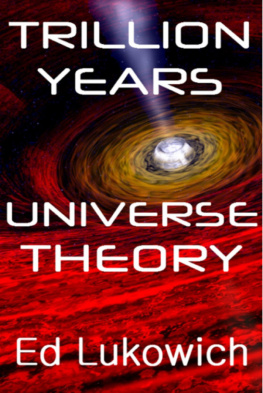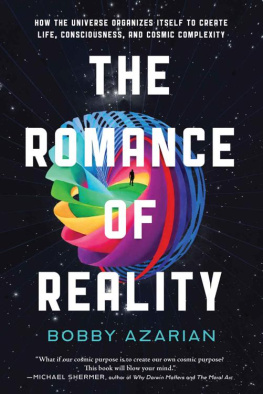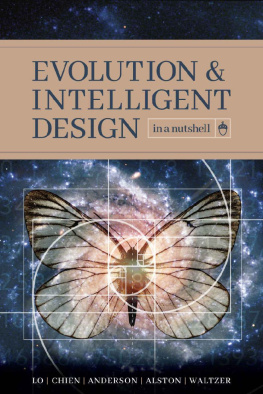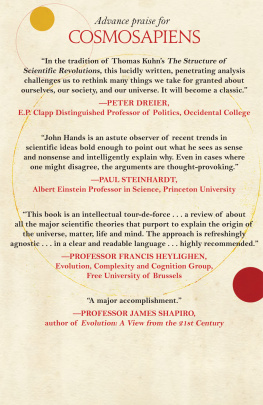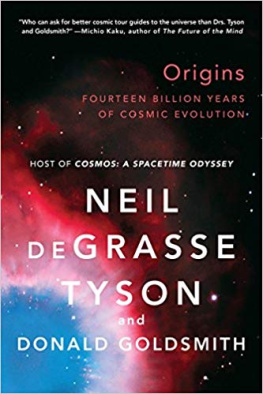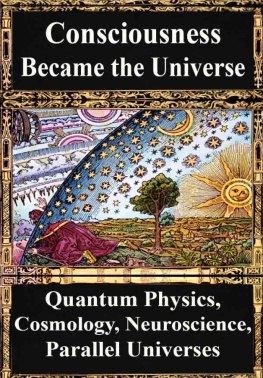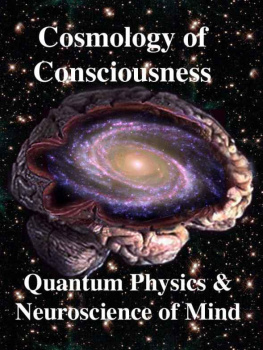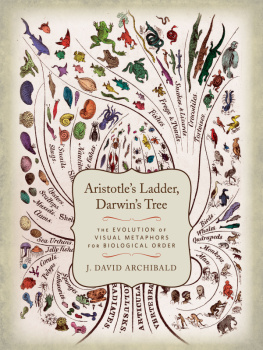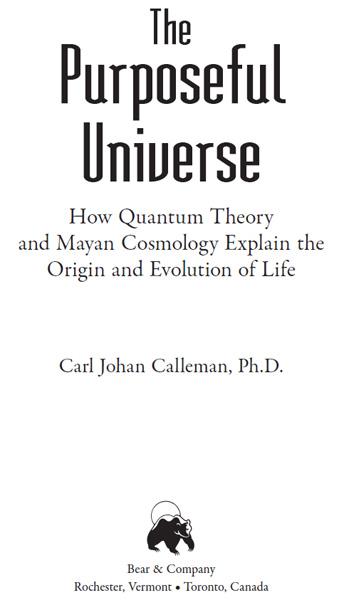
To my mother
Contents

Preface
This book, The Purposeful Universe, is meant to serve two somewhat different purposes. On the one hand, this book presents a theory to be scrutinized and critiqued by the professional scientific community. A proposal for a new theory of biological evolution as an alternative to Darwinism requires that supporting evidence from many different fields be provided in some detail. On the other hand, this theory is intended for seekers of the truth who do not have any formal scientific training. Since the substance of this theory addresses some of the most significant questions all human beings raise at one point or another in their livessuch as Who am I?, Why am I here?, and Where do I come from?I also hope that the information imparted will serve a broader audience.
This material has not been published in peer-reviewed articles because the theory needs to be presented in its entirety for the sake of clarity. If parts of it are removed from the overall context, this theory would probably appear so completely outside the ruling paradigm of science that no peer reviewer would be able to understand it. As I hope to demonstrate, a theory about biological evolution that holds together, and does not in the final analysis look upon life as an accident, requires a very broad perspective, one that includes Mayan cosmology as an indispensable part. This new theory about the evolution of the universe in fact spans so many fields that no professional scientist, and I am no exception to this myself, can have firsthand knowledge of all the fields that need to be covered for its development. This also means that many well-read nonprofessional scientists are as well equipped to study and evaluate this theory as someone who has a scientific degree in just one of its specialized fields. Consequently, I think this book should be accessible to a fairly broad audience. Meaningful science is never overly complicated, and a true theory should be clear enough that it is accessible to just about everyone with a strong interest. I think we have now come to a point where the closing words of Stephen Hawking in A Brief History of Time may apply:
If, however, we were to discover such a complete theory, its general principles should be so simple as to be understood by everyone, not just a few scientists. Then we shall all, philosophers, scientists, and just ordinary people, be able to take part in the discussion of the question of why it is that we and the universe exist. If we find the answer to that, it would be the ultimate triumph of human reasonfor then we would know the mind of God.
It is exactly this kind of discussion that I would like to see result from the study of the theory presented, and in consequence I have decided to leave it up to all readers to decide for themselves, or among themselves, whether this new theory of evolution makes sense and is useful for them in pondering the big questions of life.
I should point out that this book contains the original theory; this is not a book popularizing a theory that has been developed somewhere else. Despite the amount of detail that is included, I think that generally the arguments are easy to follow and the math is elementary. I hope with this book to directly share the excitement of the development of a new scientific theory and the methodical detective work that is needed to verify it. I also encourage a critical reading when it comes to the facts and logic presented. While intuition is very important for developing a new theory, I feel that intuition by itself is of little value if it cannot be verified by facts and logic.
To some, the title of the book may seem controversial and its focus, biological evolution, even more so, as this has been the center of a hard-fought battle between religious creationism and Darwinism for 150 years, a struggle that has probably even intensified in the past decade. The purpose of this book is to propose a resolution to this conflict through a theory that brings our understanding to a higher level from which our perspective can be unified. As it turns out, with this theory both sides in the protracted conflict actually get to be right in very fundamental ways, which incidentally may be completely unsuspected even by their protagonists. Yet to arrive at such a unified model, it is necessary to criticize earlier ideas that by necessity serve as our points of departure. Thus I spend some time explaining the theory of Darwinism in its current form, which is what dominates the scientific environment, along with the big bang theory, which explains the beginning of the universe. These make up the creation story that is embraced by the modern educational system. It is therefore an urgent matter to find out if these theories are true or if the facts that they are based on can more favorably be looked upon in an entirely different way. I spend much less time criticizing Young Earth Creationism, not because I embrace it, but because it ignores empirical evidence to an extent that such a discussion would not seem meaningful.
Hence, the present book is primarily a scientific theory about the basic nature of the universe and its evolution, especially pertaining to physics and biology, and so it deals mainly with the history of the cosmoswhere we come from. It does not directly address the question of what will happen in the years and months leading up to 2011 and afterwhere we are going. My understanding of the history of humankind and its future has however already been discussed quite extensively in two previous books: Solving the Greatest Mystery of Our Time: The Mayan Calendar and The Mayan Calendar and the Transformation of Consciousness. These two books complement the present one. Nonetheless, I think that this new book is instrumental for readers who want to understand the current situation of humanity. For me, a discussion of the future of humanity based on the Mayan calendar has always required proof that this calendar is accurate, that it can be used to match events in history or biology with the passage of time. I do feel the present book adds crucial evidence that the true Mayan calendar, with nine Underworlds and thirteen Heavens, is useful for understanding evolution, and I believe this is necessary for a meaningful understanding also of the future. Especially when the media are defering all their interest on the meaningless date of December 21, 2012, it seems all the more important to provide information concerning what the true Mayan calendar tells us about ourselves and the purpose of the universe.
In a sense this book is the third in a trilogy that with the two mentioned above develops a complete theory about the evolution of the universe. While it might have seemed natural to start this trilogy with the evolution of the physical universe and biological species and move on to human history, the books have if anything been going in the opposite direction. Hence, this trilogy ends with the current book, with its more basic analysis of the nature of the universe. The main reason that the scientific book about physical biology comes last is that it is only in light of some recent discoveries in the scientific literature that it seems possible to develop a coherent theory of evolution without large gaps and unfounded assumptions. This third book is in my own mind the deepest and most powerful for understanding the nature of the purposeful universe that we are part of, and hopefully it will also help readers to complete their own pictures of where they come from and where they are meant to be going.
Next page

